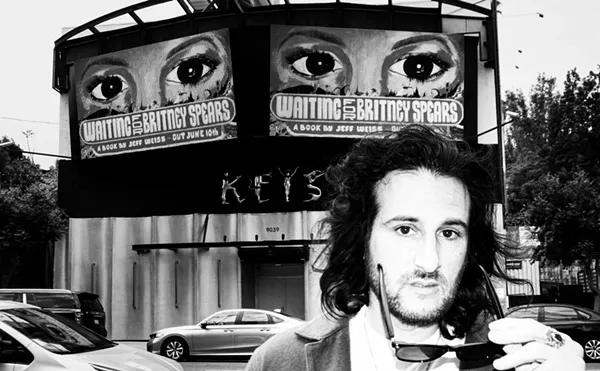OK, Google Glass, show me how to play Liszt like André Watts.
The staff at the AT&T Performing Arts Center snagged a pair of Google Glasses from their partners at the International Association of Venue Managers and tested them out yesterday with pianist André Watts during rehearsal for his Monday night recital. The resulting video (above) is a bit wobbly at times, but how cool is it to see a few minutes of what practice looks like from the perspective of the performer himself?
What I find most interesting in this video is watching Watts "experiment" with the sound of the instrument, listening for the decay of each note and getting to know that specific piano in that specific hall. He's not just practicing patterns of notes. He's carefully crafting sound.
Last night during the recital, that careful listening paid off. Watts' performance was the best piano recital I've heard to date at the Winspear. From start to finish he played with a beautiful tone and energetic, rhythmic drive. He has an incredible ear for melody and was careful to always let it speak out above the fray of busy accompanying notes. In the final pieces of the concert -- Franz Liszt's Un Sospiro (an excerpt of which can be heard at the end of the Google Glass video) and the Transcendental Étude in F Minor (No. 10) -- he was at his most engaging. His enormous hands rippled across the keys, all the while making the notes that mattered sing beautifully above the rest.
Last night's program was a somewhat academic, chronologically arranged (for the most part) tour of piano music from the 17th through the early 20th century. While that may sound like a dry approach, the stylistic diversity it provided and the quick pacing of each half of the concert gave the recital a sense of continuity and momentum.
Starting with a technically dazzling rendition of three Baroque-era sonatas by Italian composer Domenico Scarlatti, Watts reminded the audience that swooning and sighing over romantic melodies are not the only way to impress at the keyboard. Stomping his feet back and forth emphatically under the piano, he drew attention to the rhythmic energy of these early keyboard works.
Watts' classical excursions were less inspiring. Mozart's Rondo in A minor (K. 511) lacked personality last night and, while Watts' rendition of Beethoven's Sonata in D (Op. 10, No. 3) had a lot of vitality and punch, it was a little rushed throughout.
All the classical restraint of the first half of the program was let loose after intermission, when Watts' beautiful tone and technical brilliance shone during performances of Debussy's Estampes, a trio of Chopin Etudes and three works by Franz Liszt. Throughout all these pieces, Watts maintained propulsive rhythmic drive, but sometimes I wanted him to give us a little more push and pull, to let the music breathe a bit and relax into those gorgeous melodies. It felt a bit like a drive down a scenic highway with Watts at the wheel. While I was glad he didn't stop at every overlook, languishing over each melody like so many performers do, I needed at least one break to pause and take it all in, a moment to emotionally connect to the music. Instead we sped along, taking in one stunning view after another from the window.
Again, though, Watts strength was in his sound, which even at a fast pace was pristine and never harsh or banging. The Winspear's heavy curtain was left open last night, which also might have helped with the resonance of sound in the hall.
This recital series continues to be a welcome addition to Dallas' classical offerings. Last night's program gave audiences a peek at next year's offerings, too, which feature violin superstar Joshua Bell, the exciting and innovative Brooklyn Rider quartet and, most interestingly, Stewart Goodyear in a marathon performance of all of Beethoven's piano sonatas in one day. Maybe Goodyear can borrow those Google Glasses so he can at least check his Facebook during a slow movement.












